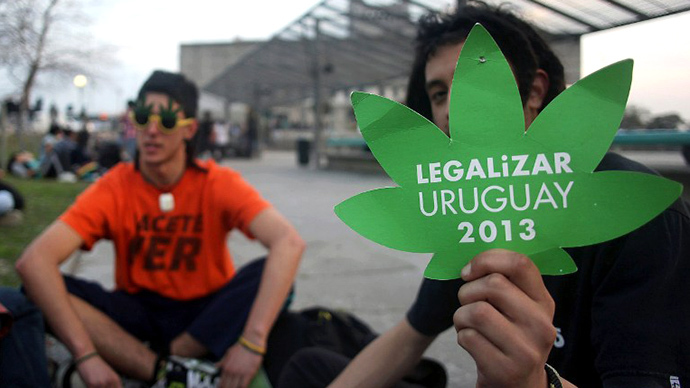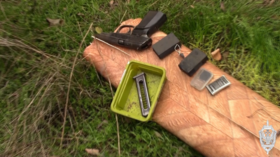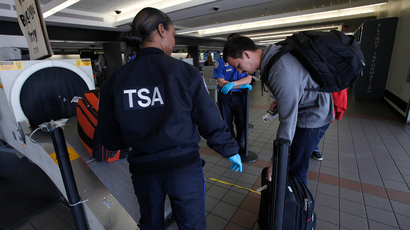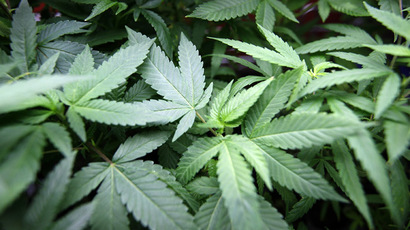Uruguay senate to vote on legalizing sale of marijuana

Uruguay is just one step away from becoming the first country in the world to legalize marijuana. On Tuesday, the Senate is to vote on a historic bill that would regulate the production and sale of cannabis for adults at a price of $1 per gram.
The legislation, put forward by President Jose Mujica, was approved by the lower chamber of congress in late July. It is believed that the bill’s passage through the Senate is almost certain given that Mujica supporters, the leftist Broad Front hold the majority in the upper chamber.
The measure is meant as a social experiment aimed at reducing drug-related crime. For over a year, president Mujica, 78, has been actively campaigning for the law that will give the government control and regulatory power over the entire chain from the production and harvesting to the sale and consumption of pot.He has also urged foreign governments to support the move.
“We are asking the world to help us with this experience, which will allow the adoption of a social and political experiment to face a serious problem - drug trafficking,” he said in an interview with Brazilian daily Folha de Sao Paulo. “The effects of drug trafficking are worse than those of the drugs themselves.”
The President stressed that Uruguay will not become the land of “free marijuana,” adding that the government plans to regulate a market that already exists. “We can't close our eyes to it. Repression has failed,” Mujica said.
He also said that the government planned to imprint a singular genetic code in the plants to restrict the circulation of unlicensed marijuana in the country.
In the event the regulations do not work and the experiment is judged a failure, the government will reverse its decision, the Uruguayan president pointed out.

The initiative has stirred up debate within the small South American country. A poll carried out in September found 61 percent of those surveyed do not approve, reported AFP. The bill has also raised questions by some neighboring states like Brazil who fear that Uruguay's cannabis may find its way into their territory – where marijuana is illegal.
On Monday, a Uruguayan conservative opposition lawmaker demanded a referendum on the matter, reported The Guardian. Gerardo Amarilla, of the National Party, insisted that it is up to citizens to decide on the way to tackle the drugs market. “Public perception, reflected in public opinion polls, is that this measure is the wrong way to address a serious problem,” he is quoted as saying.
Opponents of the initiative also fear that illegal competition could undercut state prices, from which revenues will be needed to fund expensive and complex regulation, writes the Financial Times. If the official price is too low, it will not only increase consumption, but also allow black market dealers to buy cheap pot and then re-sell it at a profit.
“We’re not going to get rid of drug-traffickers, if anything we’ll be generating more clients for them,” Jorge Gandini, an opposition lawmaker said as cited by the FT.
Lawmakers earlier agreed an initial price of $1 per gram, while the illegal market value currently stands at around $1.40 for a gram.
If passed, the bill will allow registered adult citizens (aged above 18) to buy up to 40 grams of pot per month from pharmacies. Registered Uruguayans will also have a right to cultivate up to six marijuana plants, and cannabis clubs with up to 45 members will be able to grow up to 99 plants. The regulation of the market, as well as control over prices and production levels will be carried out by a specially set up government-run institute.
Currently, it is illegal to sell drugs in Uruguay, but consuming them or possessing for personal use is not penalized. Pot is the most common of drugs in the country, where its consumption has doubled over the past decade. The National Drug Board estimates that there are around 120,000 marijuana users in Uruguay from a population of 3.3 million, while consumer groups put the number of users at around 200,000.














